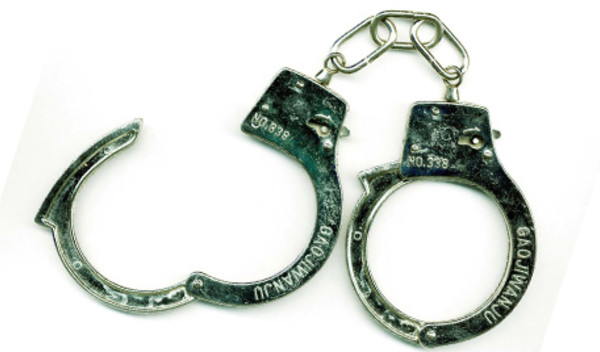

A serial-fraudster has been sentenced to four years in prison following an elaborate £100,000 wine investment scam.
Lasse Hartmann, 44, convinced friends and business partners that he was an international businessman dealing in fine wine and champagne.
The Danish national tricked supposed investors into paying thousands for what they thought were lucrative wine packages, but in reality he was using the money to fund his own champagne lifestyle.
The full extent of his fraud was uncovered following an investigation by the Met’s Fraud and Linked Crime Online unit, which identified more than 20 people who had fallen victim to the con artist.
PC Alex Ramsay, from the Met’s Falcon Unit, who investigated the case said: “Hartmann is a professional conman and fraudster. He didn’t care about the people he was hurting, either financially or emotionally.
“He exploited everyone around him, not least the woman who thought that she was going to marry him.
“He used her status as a respected food blogger to give him credibility and from there managed to convince a number of businesses to go into partnership with him.
“He never had any intention of delivering his side of the bargain and simply used their money to fund his lavish lifestyle and gambling habit.
“Hartmann is now facing the very real prospect of time in prison, which reflects the devastation and misery he has caused to such a large number of victims.”
Hartmann began his fraud in January 2014, when he befriended, and then entered an online relationship with a woman from Ilford.
Over the course of 17 months, Hartmann, using the alias ‘Lars Petraeus’, posed as a well-connected multi-millionaire business trading in the global wine industry.
He won the trust of the victim by initially making lavish purchases using his credit card.
He then took control of two inactive bank accounts belonging to her, but cited various tax and cash-flow problems that resulted in her loaning him several thousand pounds, which he never repaid.
As the victim was an influential food blogger, she introduced him to various contacts she had in the food industry, whom he then went on to exploit by promising to deliver various consignments of wine and champagne that he had no means or intention of ever completing.
Another of Hartmann’s victims - an online meat trader - even entered a business partnership with him, believing that he was in the process of expanding his business into the wine trade.
In total, the business lost almost £20,000 to Hartmann in payments to him for wine, fridges and IT equipment that never materialised. The business also suffered losses estimated to be around £17,000.
Hartmann went on to exploit his association with the business and used the company’s reputation and email address he was given to give him further credibility in order to target other victims.
He offered the staff of partner companies he was working with special wine investment packages ranging from £240 upwards and received over £11,000 from unsuspecting victims who thought they would be getting wine packages, but ultimately received nothing.
His fraud was so elaborate that he hired a personal assistant and chauffeur to give him added kudos and convince others that he was a legitimate businessman.
But he also left both his employees out of pocket to the tune of £25,000 in unpaid wages and even took a further £2,500 from his driver who thought the money was being invested in wine.
Among his other victims was a chef, who invested £3,500 in the belief the money would be used to buy wine from abroad, and a wedding planner, whose services Hartmann had enlisted to plan his wedding to his unsuspecting girlfriend.
Again, he duped the planner into investing around £5,500 into his wine ventures and also lost around £25,000 in lost revenue from business he turned down because he was organising the bogus wedding.
In total, Hartmann’s victims lost more than £104,000 to his fraud and although he paid back around £18,000 as he became aware police were investigating his activity, he still left many of the victims out of pocket.
Hartmann was convicted of 22 counts of fraud in April 2017 and sentenced to four years imprisonment at Snaresbrook Crown Court on Wednesday (19 July).
Hartmann was also wanted by Danish authorities for breaching the terms of his sentence there, having previously been convicted of other similar fraud offences in Denmark and will be returned to the country for this matter upon completion of his sentence in the UK.
Following Hartmann's conviction, Her Honour Judge Paneth also awarded PC Ramsay with a judge's commendation for his “extensive investigation and diligent work” in the case.
emma.hughes@ft.com




